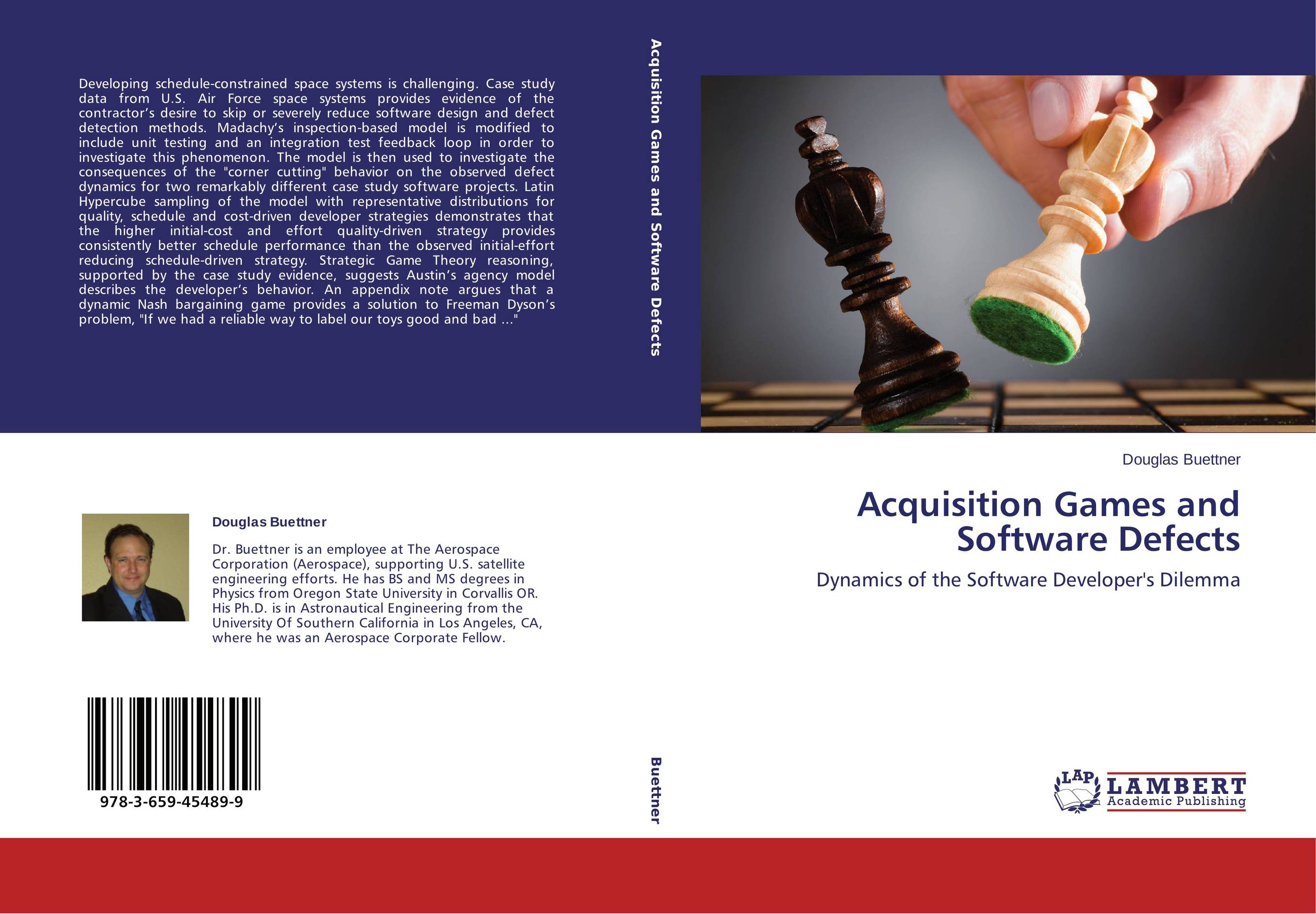| Поиск по каталогу |
|
(строгое соответствие)
|
- Профессиональная
- Научно-популярная
- Художественная
- Публицистика
- Детская
- Искусство
- Хобби, семья, дом
- Спорт
- Путеводители
- Блокноты, тетради, открытки
Acquisition Games and Software Defects. Dynamics of the Software Developer's Dilemma

В наличии
| Местонахождение: Алматы | Состояние экземпляра: новый |

Бумажная
версия
версия
Автор: Douglas Buettner
ISBN: 9783659454899
Год издания: 2014
Формат книги: 60×90/16 (145×215 мм)
Количество страниц: 356
Издательство: LAP LAMBERT Academic Publishing
Цена: 41836 тг
Положить в корзину
| Способы доставки в город Алматы * комплектация (срок до отгрузки) не более 2 рабочих дней |
| Самовывоз из города Алматы (пункты самовывоза партнёра CDEK) |
| Курьерская доставка CDEK из города Москва |
| Доставка Почтой России из города Москва |
Аннотация: Developing schedule-constrained space systems is challenging. Case study data from U.S. Air Force space systems provides evidence of the contractor’s desire to skip or severely reduce software design and defect detection methods. Madachy’s inspection-based model is modified to include unit testing and an integration test feedback loop in order to investigate this phenomenon. The model is then used to investigate the consequences of the "corner cutting" behavior on the observed defect dynamics for two remarkably different case study software projects. Latin Hypercube sampling of the model with representative distributions for quality, schedule and cost-driven developer strategies demonstrates that the higher initial-cost and effort quality-driven strategy provides consistently better schedule performance than the observed initial-effort reducing schedule-driven strategy. Strategic Game Theory reasoning, supported by the case study evidence, suggests Austin’s agency model describes the developer’s behavior. An appendix note argues that a dynamic Nash bargaining game provides a solution to Freeman Dyson’s problem, "If we had a reliable way to label our toys good and bad ..."
Ключевые слова: Software, System Dynamics, Game Theory, Satellites, U.S. Department of Defense, Acquisition, defects, agent relationships



